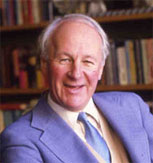 The Greener Grass Conspiracy: A Review
The Greener Grass Conspiracy: A ReviewWhat kind of author, Christian author that is, would write a book that had the words “Greener Grass” in the title and started a chapter with the following: “Had I lived in ancient Israel, I would have been stoned. Not in the “Hey, man, pass me another doobie” way but in the “People are throwing large stones at my head” way.” (59)?
Stephen Altrogge, that's who.
According to the bio at his blog, “Stephen Altrogge works as a pastor at Sovereign Grace Church of Indiana, PA, where his main duties include leading worship, working with college students, and shining his dad’s shoes. He also has written a number of worship songs that have been included on Sovereign Grace Music albums. Stephen is the author of the book
Game Day For the Glory of God: A Guide For Athletes, Fans, and Wanabes, which was published by Crossway Books in September 2008, and
The Greener Grass Conspiracy: Finding Contentment on Your Side of the Fence, which will be published by Crossway Books in April 2011. When not shining his dad’s shoes, you can find Stephen drinking coffee or playing video games.”
This lighthearted playing with words can be found throughout the book. But don't let that colour your impression of the book.
The Greener Grass Conspiracy is a serious book dealing with a serious topic; contentment. Altrogge's use of humor is an appreciated skill when reading a book that concerns itself with selfishness, suffering, and sin.
The Greener Grass Conspiracy is a work that seems to lean on two classics on the same subject:
The Rare Jewel of Christian Contentment by Jeremiah Burroughs and
The Art of Divine Contentment by Thomas Watson. I have read the former but not the latter. Both these Puritan books are considered by many to be 'must-reads' on the topic of contentment and Altrogge's dependence on them is wise and winsome. By drawing from Watson's book and 'The Rare Jewel', and sprinkling in some quotes by Piper, Spurgeon, and Tada, Altrogge has produced a nice little gem.
Altrogge's writing style, simple to silly to sophisticated to serious, makes this subject approachable to many who might find the aforementioned Puritan volumes too difficult or too much work. He discusses many facets of this timeless and troublesome transgression with personal stories that help in the recognition of the problems as well as some of the answers and practical responses in dealing with being discontented.
After opening with the idea of a conspiracy that enmeshes us all and breeds a dangerous and deadening discontentment in us all, Altrogge begins to unfold the dilemma of the discontented. In the first two chapters, the author discusses the reasons for the problem of not being content. First, when it comes to discontentedness, “The problem is me. I am my own worst enemy. The raging, covetous, discontented desires come from within” (17). Secondly, discontentment “happens when I attempt to displace God from his rightful place at the center of the universe ... Discontentment results from a big view of myself and a very little view of God” (24). With this starting point of man's depravity, Altrogge begins his exhorting and explaining of true contentment.
After exposing the underlying roots of the 'Greener Grass Conspiracy', Altrogge lays the groundwork for a life of contentment by giving the reader his definition of contentment: “Contentment is a disposition of the heart that freely and joyfully submits to God's will, whatever that will may be” (28). This Borroughs-inspired definition indicates where the author would like to see his readers focus instead of grass-gazing at others.
After breaking down his definition, Altrogge works through issues related to contentment: idolatry and lies we believe about God's character and ours. This opens his discussion on the gospel. I found the chapter entitled
Bloody Contentment to be my favorite. In Altrogge's opinion, to be content we need to have a relationship with God which is only possible due to the life, death, and resurrection of Christ. In similar fashion to other Sovereign Grace Ministries authors, Altrogge keeps the cross at the center of this work. The next chapters move towards practical application of what Altrogge has expounded so far.
We learn that contentment can not be conjured with a magical formula and that a sincere relationship with Jesus is the only “secret” to sustaining a disposition of contentment. We are presented with the dangers of complaining and the benefits of gratefulness. These chapters add some depth to the book and their practical bent will be appreciated by readers.
The final two chapters focus on encouragement. We can find solace in suffering when we consider the fact that God is working all things for our good. And our forward-looking view of heaven will provide motivation for a heart-posture that is submissive to God.
I found this book a great, quick read on a topic that we North Americans need constant reminder about.
The Greener Grass Conspiracy stays far away from self-help therapy and cliche-ridden platitudes by focusing on God and the gospel. Altrogge's 80's allusions (Back to the Future for example), sarcasm, and willingness to poke fun at himself make a sometimes difficult discussion considerably easier. Despite the looked-for but noticeably absent bacon jokes (follower Mark on twitter for an idea about his bacon infatuation), this is a book that will work nicely as a compliment to the weightier works by the Burroughs and Watson and it just may be a better choice for a small group study or a less ambitious reader. I definitely recommend it.
For a trailer of the book, look no further:
"Greener Grass Conspiracy" Trailer - Stephen Altrogge from Crossway on Vimeo.











